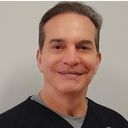Have had 2 breast surgeries, resulting in C-diff post-op. I would like to get a facelift - are antibiotics required?
I am 61 years old, and had Ancef perioperatively and Keflex post op. Otherwise healthy.
I am 61 years old, and had Ancef perioperatively and Keflex post op. Otherwise healthy.







What’s trending? Who’s turning heads? Which TikTok myths need busting? We’ve got you. No fluff, no gatekeeping—just real talk. Get our free, unfiltered newsletter.